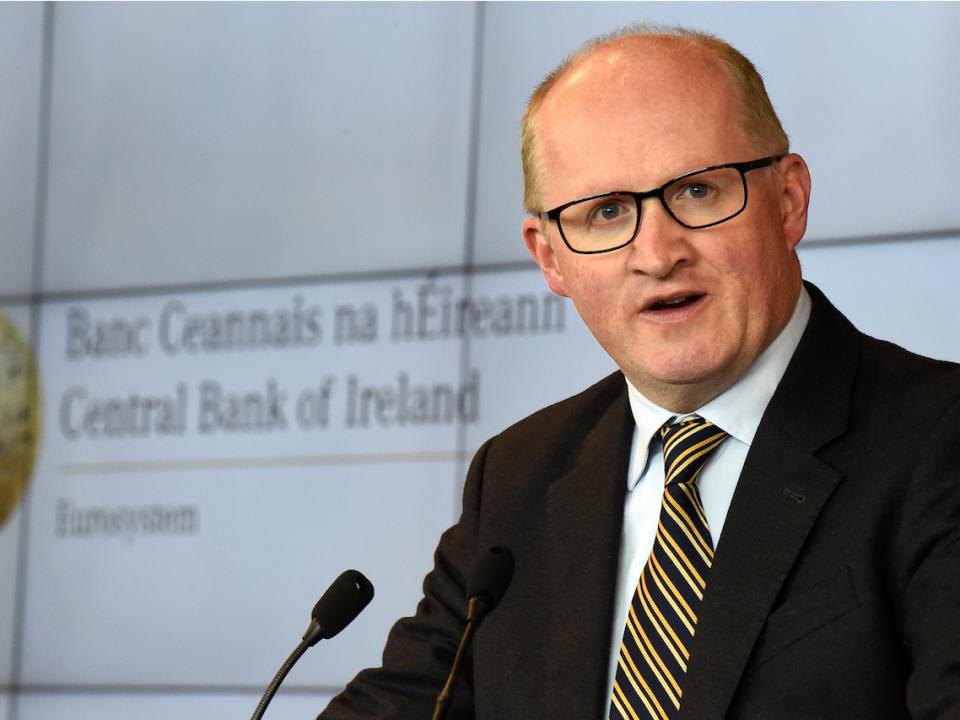The central banker some have tipped to succeed Mario Draghi thinks Britain could protect its near-€900 billion euro clearing business after Brexit

Reuters/Clodagh Kilcoyne
LONDON — Philip Lane, the governor of the Central Bank of Ireland, said that Britain may be able to protect its euro clearing activities during Brexit talks if it can maintain a regulatory system close enough to that of the European Union.
Speaking to The Times, Lane — who has been tipped in some circles as a possible successor to current European Central Bank President Mario Draghi — struck a far more conciliatory tone than many eurozone central bankers and politicians on the topic of clearing.
"The question is once Brexit has occurred what type of understandings can be developed between the UK and the EU," Lane, who sits on the ECB's governing council, said.
"The European Commission’s position [on euro clearing] turns on this point and that is the importance of location. It is not going to be important if the regulatory systems are going to be similar."
"On the other hand, if there is a significant distance between the UK regime and the EU regime, then location becomes a live issue because euro clearing is an important part of the European financial system."
Lane's comments to the Times come as calls from some parts of the eurozone to move clearing out of London and to a hub on the continent — most likely Paris or Frankfurt — intensify.
Around 75% of all euro-denominated contracts are cleared in London, at a nominal value of around €885 billion euros a year.
Clearing houses such as LCH and ICE Clear Europe in London manage credit risk, acting as a middle-man in swaps and derivatives trades to guarantee the contract in the event that one of the parties involved in the trade goes bust.
European policymakers have argued that euro clearing should take place within the euro area. Britain has repeatedly had to defend its right to clear euro trades, given that it does not have the euro.
However, Brexit has provided fresh impetus for those seeking to move clearing out of London, with the ECB proposing a change to its statute that would give it "a clear legal competence in the area of central clearing," back in June.
The change would give the ECB, and other central banks in the euro zone, a major role in deciding which clearing houses would have to leave London to continue their euro-denominated business.
NOW WATCH: We ate at Warren Buffett’s favorite Omaha steakhouse — and got a peek into his private dining room
See Also:
Deutsche Bank CEO tells staff: Prepare for Brexit 'worst outcome'
'Our flying rights in Europe will be secure': easyJet allays fears about post-Brexit disruption
SEE ALSO: Forcing euro clearing out of London after Brexit is not only impractical but actively dangerous

 Yahoo Finance
Yahoo Finance 
